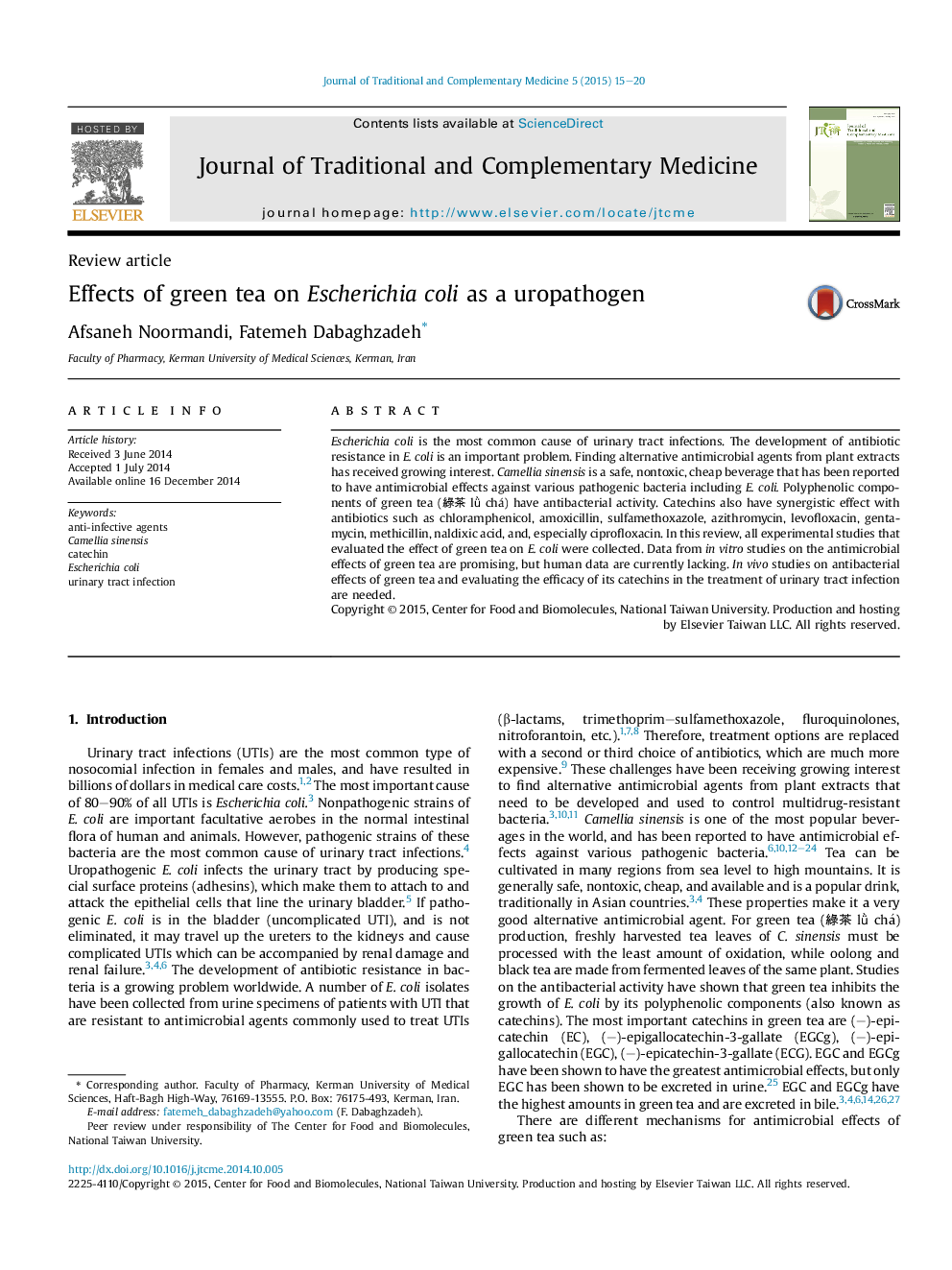| Article ID | Journal | Published Year | Pages | File Type |
|---|---|---|---|---|
| 3099705 | Journal of Traditional and Complementary Medicine | 2015 | 6 Pages |
Escherichia coli is the most common cause of urinary tract infections. The development of antibiotic resistance in E. coli is an important problem. Finding alternative antimicrobial agents from plant extracts has received growing interest. Camellia sinensis is a safe, nontoxic, cheap beverage that has been reported to have antimicrobial effects against various pathogenic bacteria including E. coli. Polyphenolic components of green tea (綠茶 lǜ chá) have antibacterial activity. Catechins also have synergistic effect with antibiotics such as chloramphenicol, amoxicillin, sulfamethoxazole, azithromycin, levofloxacin, gentamycin, methicillin, naldixic acid, and, especially ciprofloxacin. In this review, all experimental studies that evaluated the effect of green tea on E. coli were collected. Data from in vitro studies on the antimicrobial effects of green tea are promising, but human data are currently lacking. In vivo studies on antibacterial effects of green tea and evaluating the efficacy of its catechins in the treatment of urinary tract infection are needed.
Graphical abstractFigure optionsDownload full-size imageDownload as PowerPoint slide
